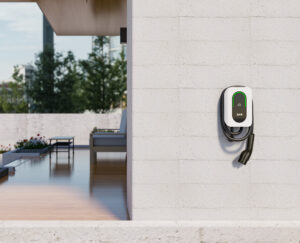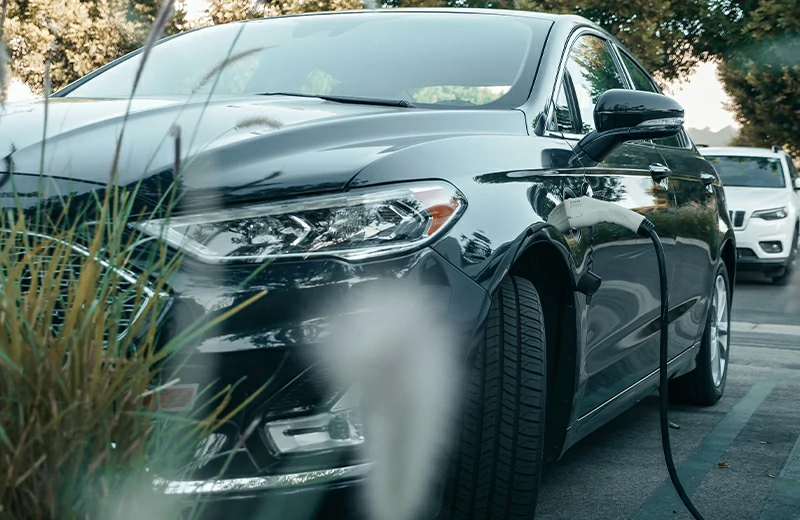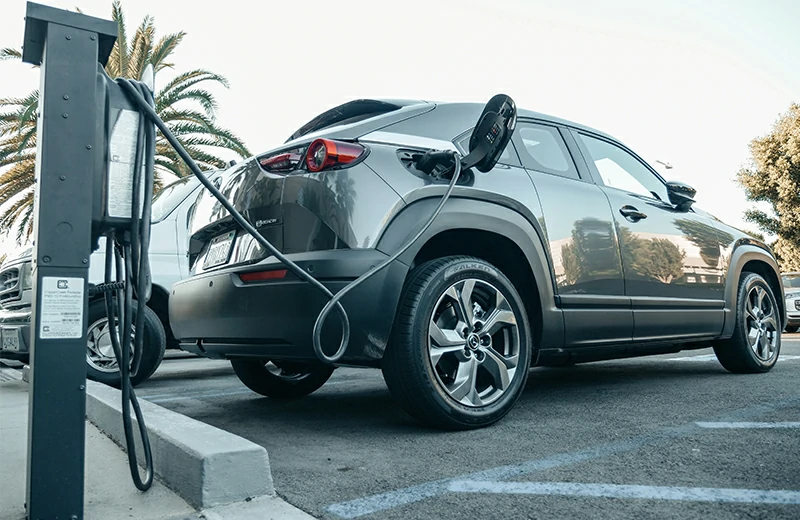
Vehicle-to-Grid (V2G): The Future of EV Charging and a Smarter Energy Grid
Vehicle-to-Grid technology is redefining the role of electric vehicles, turning them into dynamic energy assets that benefit drivers, utilities, and the planet.

While it’s easy enough to know the price of an electric car, it’s much more challenging to know the commercial EV charger installation cost. A charging station also called a wallbox , allows you to charge your electric car up to ten times faster in complete safety.
The latter is, therefore, essential for the transition to electric mobility, and its acquisition goes hand in hand with that of the car. It is, therefore, interesting to look at what determines the commercial EV charger installation cost at home and in business.
This article helps you understand the different elements that determine the commercial EV charger installation cost:
The first parameter that influences the total commercial EV charger installation cost is a choice of material. The price of the wallbox is a determining factor in the total cost!
The first parameter that comes into play in the cost of installing a charging solution is the charging station itself. The price of the terminal varies in the first place according to the brand. There are different brands of charging stations.
Some electrical equipment manufacturers and well-known companies offer charging stations, for example, Schneider, Hager, Legrand, Cahors, or Ingeteam.
Car manufacturers can also offer their wallboxes. The latter can display a higher price explicitly designed for the brand’s vehicles.
Specialized manufacturers of charging stations have also appeared in recent years. We can, for example, mention EnelX, Wallbox, Newmotion, EVBox, and e-totem.

Source: Joint Tech EV Station Installation
For a given brand, the price of the terminal also varies according to its model. The more advanced the charging station features, the higher its price. The least expensive terminals are essential, without an access control system or communication functions.
Standard advanced features include an LED screen, access control using a badge reader, or WiFi internet connectivity.
The double terminals, which allow charging two vehicles simultaneously, have a higher price than the single terminals.
Finally, the price of a terminal is characteristic of its power. There are four nominal charging powers: 3.7 kW, 7.4 kW, 11 kW, and 22 kW. In principle, the higher the power of the charging station, the faster the charging and the more expensive the charging station.
Some terminals are adjustable from 0 to 22 kW. They are often more expensive than terminals limited to a single power.
It should be noted that terminals are not the only charging solutions. There are also reinforced sockets designed for charging electric vehicles. Their cost is much lower than that of a terminal.
However, the power of these sockets is limited to 2.2 kW, or 10 kilometers of autonomy regained per hour of recharging on average. It’s a slow solution.
It should be noted that a specific charging cable, called type 2, is required for charging at a terminal. The Type 2 cable is sometimes supplied with the vehicle by the vehicle manufacturer or dealership.
If no specific cable was given to you when you purchased the vehicle, it is necessary to buy one to be able to charge your car on your charging station. The cost of a cable varies depending on the cable’s brand, length, and power rating.
Type 2 single-phase 32A cable for charging at a power of 7.4 kW costs between €250 and €350, depending on the desired length.
Higher wattage cables are more expensive. A Type 2 electric charging cable can thus cost up to €500 for increased power and a long length.
ChargeGuru offers you excellent quality cables adapted to your project as an option for your installation, delivered directly to your home.

A determining factor in the final commercial EV charger installation cost is the work required to connect and install the electrical terminal. They can quickly be more substantial than the price of the charging station.
Indeed, whether it is a charging station or a reinforced socket, it must be connected to an electrical panel to be supplied with electricity. The electrical cable used for the connection must be sized for the charging power: the stronger the power, the more expensive the cable.
The distance that separates the terminal’s location from the electrical panel to which it is connected strongly impacts the total commercial EV charger installation cost. The greater the distance, the greater the power cable length will have to be and, therefore, the higher cost. Similarly, there are risks of having to plan additional work. This cost item is detailed below.
Civil engineering works, such as the construction of a trench or the repair of a ground covering, are to be taken into account to calculate the cost of installing a charging station.
A cable run of several meters under a concrete driveway will inevitably be more expensive than a wall cable run of a few meters. It is, therefore, wise to install the terminal as close as possible to the electrical panel to reduce the total commercial EV charger installation cost.
The means of fixing the charging station impact the final invoice. Installing a wall-mounted charging station is generally less expensive than mounting it on a dedicated pedestal. The pedestal needed to support a bollard and the work to fix the foot in the ground can lead to an additional cost of several hundred euros.
Finally, it should be noted that certain electrical installations must be brought up to standard before an electric car can be powered. Electrical installation professionals estimate that today in France, around seven million electrical installations are dangerous due to their obsolescence or non-compliance.
An electrician qualified for the installation of a charging solution will be able to assess the condition of your electrical installation and carry out any upgrades necessary for safe charging.

Depending on your choice of nominal charging power, it may be necessaryto increase the available capacity of your electrical installation. This involves expanding your subscription power with your electricity supplier and generates an increase in the electricity bill, independent of the cost of installing the charging station.
The additional cost on your electricity bill is around €25 per year for each power level.
An alternative solution that does not increase the subscription power is energy management. It is interesting to compare the additional cost of energy management and the recurrent expenditure of increasing power.
Installing charging stations in condominiums can be more expensive than installing them at home. The distance is often long between the electrical panel and the parking space to be equipped.
To cope with the high price variability of an installation in the car park of a building, operators such as Zeplug offer fixed prices.
For companies, the installation cost is often higher given that the configurations are often more complex (farther car parks, larger electrical installations, several charging stations, etc.)
Therefore, it is generally necessary to plan for a slightly higher budget than a company’s installation of a terminal in the house.
Subsidies and financial assistance exist to reduce the cost of installing charging stations.
Work to install a charging solution can benefit from state aid. These aids can significantly reduce the installation cost of the charging station.
Here is a summary of subsidies for the installation of charging stations:
Grant Name | For who ? | What amount? | Specific conditions |
All individuals | €300 tax credit | · Buildings older than 2 years · Owners only · Principal residence · Charging stations only (no reinforced sockets) | |
Prime Future | · Individuals in condominiums · Companies | · Up to €960 per charge point for individuals in joint ownership · Up to €1860 per charge point for businesses | Specific specifications must be respected, the ChargeGuru teams will support you! |
VAT reduced to 5.5% | All individuals | VAT reduction: the VAT rate is 5.5% (compared to the standard rate of 20%) | · Buildings older than 2 years · Charging stations only (no reinforced sockets) |
In conclusion, the commercial EV charger installation cost can range from one to several thousand euros. It depends in particular, on the price of the chosen charging station, the charging power, and the ancillary work to be carried out to supply the charging station.
Calling on a specialized charging station installer allows you to benefit from financial aid. The installer’s total invoice, including the terminal and the installation, is often more advantageous than purchasing the terminal alone in the trade.

Vehicle-to-Grid technology is redefining the role of electric vehicles, turning them into dynamic energy assets that benefit drivers, utilities, and the planet.

At this ACT Expo, Joint Tech will unveil its latest advanced commercial Level 2 charging solution, designed to enhance the user experience. Meanwhile,powered by new technology, our commercial chargers effectively address multiple challenges encountered in real-world applications.

The new tariffs imposed by the United States have once again caused global economic tension.In order to respond to the impact on the global supply chain, Joint new factory in Malaysia offers favorable tax rates.